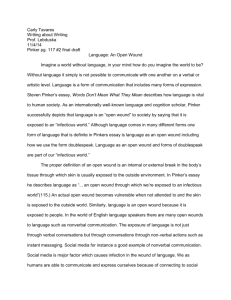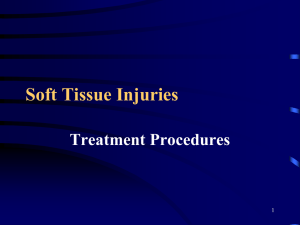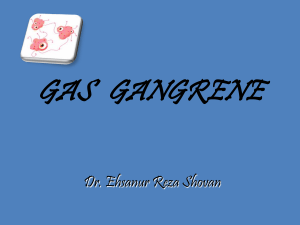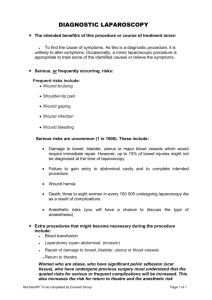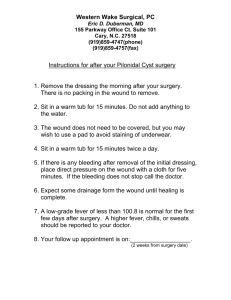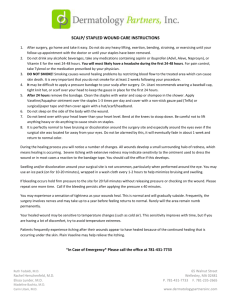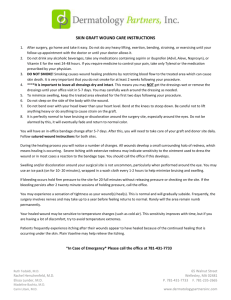Language open wound draft 1 essay 2
advertisement
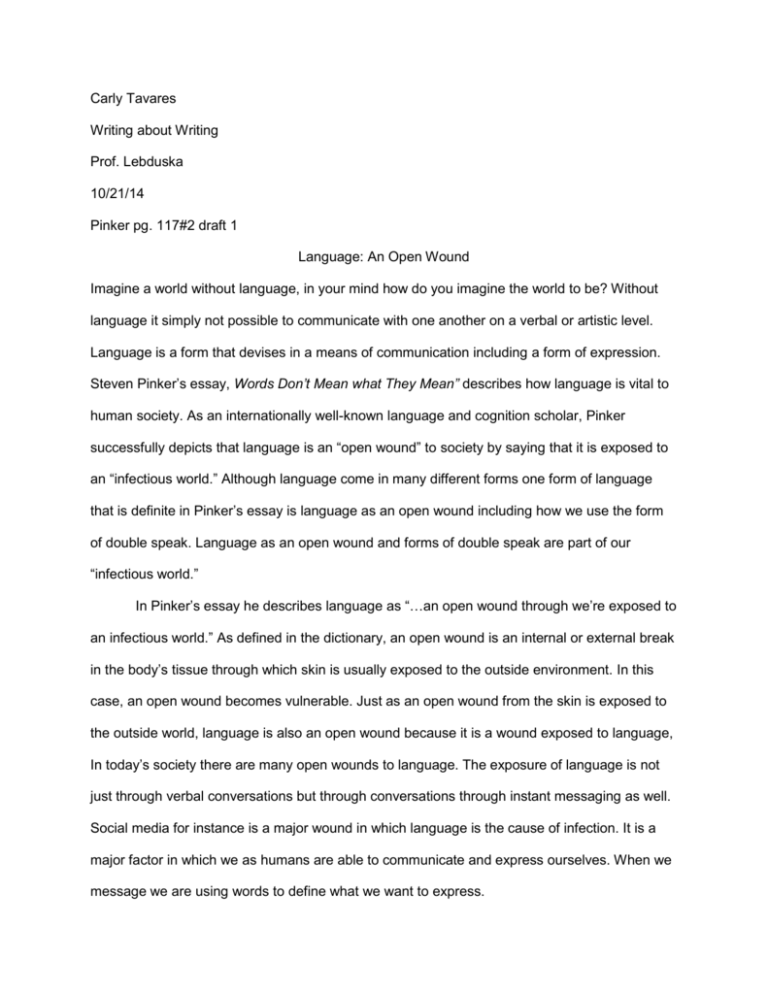
Carly Tavares Writing about Writing Prof. Lebduska 10/21/14 Pinker pg. 117#2 draft 1 Language: An Open Wound Imagine a world without language, in your mind how do you imagine the world to be? Without language it simply not possible to communicate with one another on a verbal or artistic level. Language is a form that devises in a means of communication including a form of expression. Steven Pinker’s essay, Words Don’t Mean what They Mean” describes how language is vital to human society. As an internationally well-known language and cognition scholar, Pinker successfully depicts that language is an “open wound” to society by saying that it is exposed to an “infectious world.” Although language come in many different forms one form of language that is definite in Pinker’s essay is language as an open wound including how we use the form of double speak. Language as an open wound and forms of double speak are part of our “infectious world.” In Pinker’s essay he describes language as “…an open wound through we’re exposed to an infectious world.” As defined in the dictionary, an open wound is an internal or external break in the body’s tissue through which skin is usually exposed to the outside environment. In this case, an open wound becomes vulnerable. Just as an open wound from the skin is exposed to the outside world, language is also an open wound because it is a wound exposed to language, In today’s society there are many open wounds to language. The exposure of language is not just through verbal conversations but through conversations through instant messaging as well. Social media for instance is a major wound in which language is the cause of infection. It is a major factor in which we as humans are able to communicate and express ourselves. When we message we are using words to define what we want to express. Open wounds are also created by languages such as body language and languages which can convey emotion. It is another open wound were we are exposing ourselves to languages without words Sign-language for instance is one of the languages which doesn’t not consist of words, but rather both means of body language and emotion. When people sign you an tell what they want or how they feel through the emotions depicted on a person’s face and how they move their arms and hands to express what they want to say. Sign-language is one of the languages where it is easy to tell how a person feels through the gestures and body language because words in itself has no meaning unless conveyed with tone. If one was to just say a sentence with no tone how could the person to whom they were talking to understand or feel any emotion behind the words being said? It is simply not possible in this case. Words essentially have no meaning to emotion without tone. Since language is an important means of communication this communication leads to an open wound of words not meaning what they really mean. Pinker says, “Words let us say the things we want to say and also things we would better off not having said.” This leads to a wound where language can be hurtful. There is a time and place as to where words need to be said and where words do not need to be said. As the saying goes “there is a time and place for everything” it is also the case in social media. It is humane to make mistakes. Through social media what one person posts may be acceptable to one person but harmful to another. When people express themselves on social media one comment many be the start of a social controversy. Even if the comment is deleted off the site it is never really deleted off the internet. In an essence we are trapped by what we say on the internet because everything that we say is recorded and is left out of our control. It is part of the infectious world in which we live in because anything posted on the internet spreads from one viewer to the next in seconds. In other forms, language is essentially a form in which society uses words to hide the real truth. Pinker is not surprised “that we sheathe our words in politeness and innuendo and other forms of doublespeak” because it is true. Every day we use a form of doublespeak without realizing it. People speak indirect to speech to “save face”, not to hurt feelings. In this case the question of “Why don’t people say what they mean” arises. Pinker gives the reason as to why this is simply because people are touchy about their relationships. Sentences need to convey a message and negotiate in the relationship, without it any filter of politeness is lost. Linguists use politeness as “felicity conditions” to which the goal is to have needs satisfied without being bossy. This form of doublespeak is countlessly used in political leaders who have authority ranking and donation parties because they want to convince the voters or the sponsors that they are the best candidate for the job without being abrupt about it. Language is many open wounds which involves an open world and Pinker describes this in his essay by saying that, “we are exposed to an infectious world.” By being exposed to this world we are able to have many open wounds which helps define which is a different type of language. An infection is what happens when a viruses spreads rapidly much like a post on the internet. Languages which convey body language and emotion are open wounds which explore the idea that words just don’t have a meaning unless fully expressed through actions that follow our words. Words not meaning what they really mean completes Pinker’s message that we as humans tend to “beat around the bush” by not saying what we want to say directly. Sometimes being direct in what we want to say can be difficult at times because we want to figure out the best way of saying what we want to say in a way which does not confuse or offend someone.
